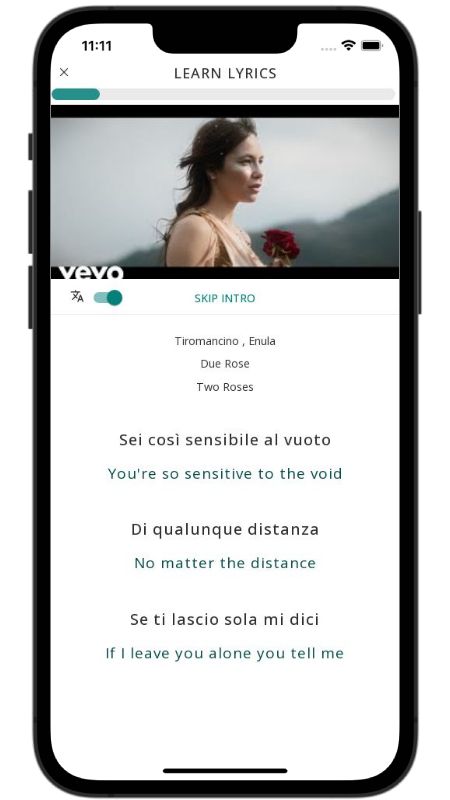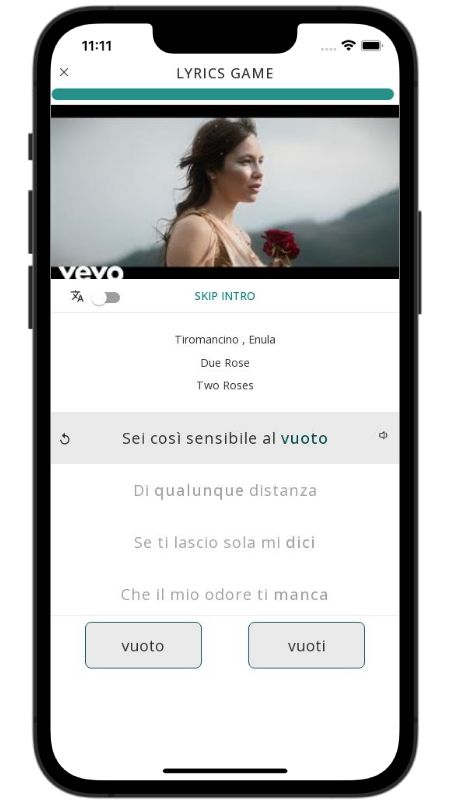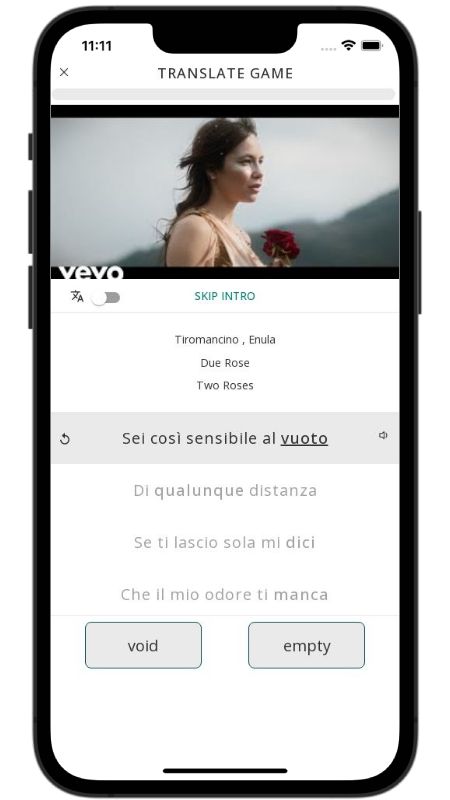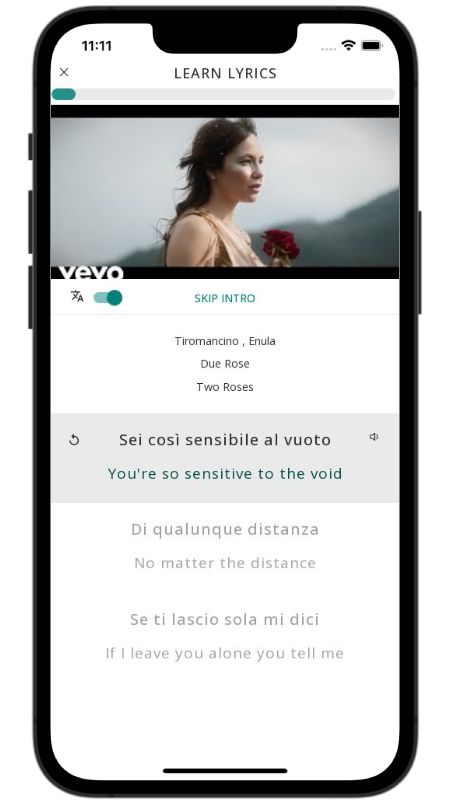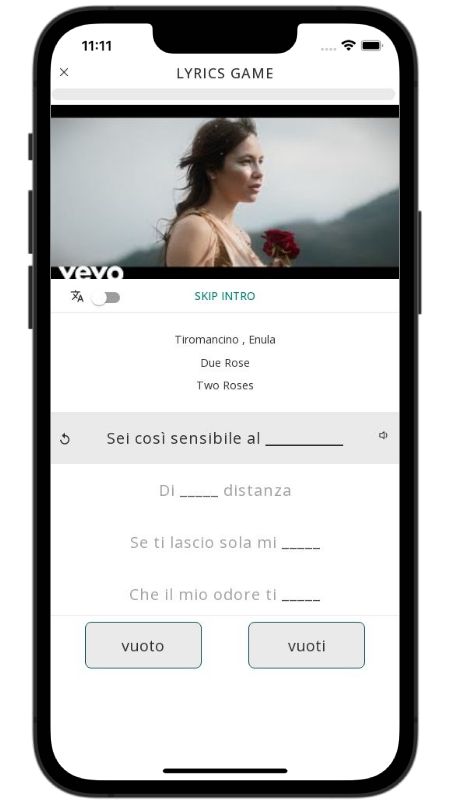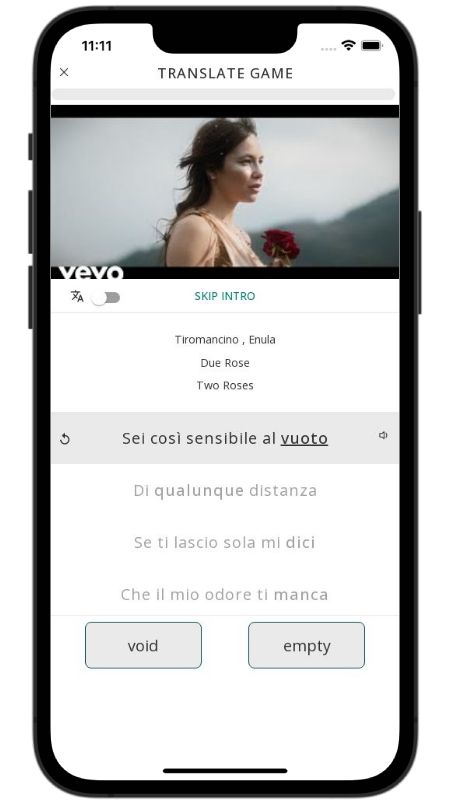Due Rose Lyrics in English Tiromancino , Enula
Below, I translated the lyrics of the song Due Rose by Tiromancino from Italian to English.
These lyrics have verified word for word translations. Click any lyric word to see the translation and hear the pronunciation!
You're so sensitive to the void
No matter the distance
If I leave you alone you tell me
That you miss my scent
I'd like to stay with you
But I already have to leave again
No, don't look at me like that
You don't let me breathe
I'll leave you
Two roses on the bed as I go
So when you wake up
You'll remember you're
Gorgeous
Gorgeous
So you turn empty, useless days into art
And as soon as I can
I'll return, I'll return, I'll return
And the night will be gorgeous
Beautiful the words you say
But you know that's not enough
I prefer instead that now
You give me an answer
If you really want me
You can't suddenly disappear
And then reappear at night
Keep telling me things like
I'll leave you
Two roses on the bed as I go
So when you wake up
You'll remember you're
Gorgeous
Gorgeous
So you turn empty, useless days into art
And as soon as I can
I'll return, I'll return, I'll return
And the night will be gorgeous
But why at night we're demons
With clothes we become weak again
My curse is for you
You wake up, look for me and don't see my eyes
I'll leave you
Two roses on the bed as I go
So when you wake up
You'll remember you're
Gorgeous
Gorgeous
So you turn empty, useless days into art
And as soon as I can
I'll return, I'll return, I'll return
And the night will be gorgeous
Lyrics and Translations Licensed & Provided by LyricFind
Lyrics © Universal Music Publishing Group
Did you like this lyrics translation?
Did you know?
In addition to reading lyric translations, you can now learn Italian with music and lyrics from your favorite artists.
Yes, including Due Rose by Tiromancino!
No more boring lessons. You can now learn with engaging and culturally relevant lyrics from the best artists.
Apple and App Store are trademarks of Apple Inc.
Google Play and the Google Play logo are trademarks of Google LLC.
MORE TIROMANCINO
iOS AppAndroid AppWeb LessonsFree PDF WorksheetsJoin ClassroomLyrics TranslationBlogAbout UsBuy as GiftLifetime

